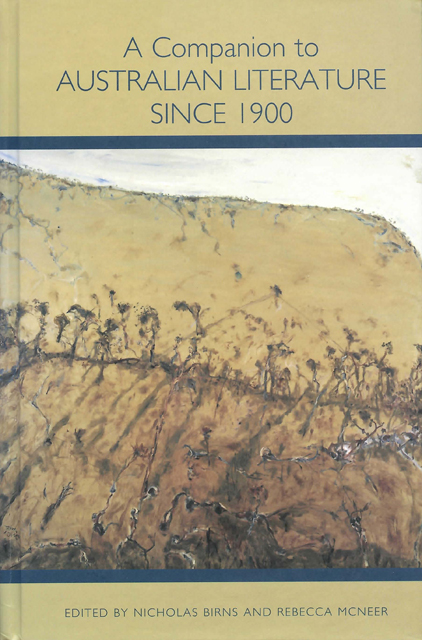Book contents
- Frontmatter
- Dedication
- Contents
- Chronology of Main Events in Australian History, 1901–2005
- Acknowledgments
- Note on the Cover Illustration and Artist
- Introduction
- Part 1 Identities
- Part 2 Writing Across Time
- Part 3 International Reputations
- Part 4 Writers and Regions
- Part 5 Beyond the Canon
- Notes on the Contributors
- Index
Introduction
Published online by Cambridge University Press: 10 March 2023
- Frontmatter
- Dedication
- Contents
- Chronology of Main Events in Australian History, 1901–2005
- Acknowledgments
- Note on the Cover Illustration and Artist
- Introduction
- Part 1 Identities
- Part 2 Writing Across Time
- Part 3 International Reputations
- Part 4 Writers and Regions
- Part 5 Beyond the Canon
- Notes on the Contributors
- Index
Summary
This Book Celebrates Australian literature of the past century. It surveys a remarkable achievement in so many forms and genres. In the proposed preamble for the Australian Constitution that he wrote in the late 1990s, Australia’s finest poet, Les Murray, spoke eloquently of aspects of Australian society that have appealed to so many readers of Australian literature worldwide: “Australians are free to be proud of their country and heritage, free to realize themselves as individuals, and free to pursue their hopes and ideals. We value excellence as well as fairness, independence as dearly as mateship.” It was a similar byplay of quirkiness and eloquence that first entranced international readers when Australian literature began to be disseminated on a world scale in the 1980s. Australian literature seemed to come out of a place where equality did not preclude idiosyncrasy or originality. Unlike other world literatures that seemed divorced from issues of morality and social conduct, in Australian literature “ethics” and “aesthetics” did not seem separated. Australian writers were writing in a familiar tradition. But they were doing so with a demonstrably fresh viewpoint. They afforded the reader access to a plenitude of literary experiences that most had not previously known existed.
But the vantage point assumed by this volume differs sharply from the self-congratulatory perspective often taken when discussing the general course of Australian literary history. The metaphor of emergence that has dominated such discussion is limited. It severely occludes our view of what has actually happened in Australian literature. The idea of emergence assumes that national literary histories have a teleological course, that they develop over time. Australian literature, it is said, achieved this development somewhere between Patrick White’s winning the Nobel Prize and the worldwide recognition accorded to writers of the next generation such as David Malouf, Tim Winton, and Peter Carey.
In other words, the world began to notice Australian literature when Australian literature was good enough. This equation has something in it for Australian literature, which is now seen as having developed sufficiently to be visible worldwide. It also reassures world literary opinion for having the insight to hone in on the precise moment when Australian literature became worthy of global kudos.
- Type
- Chapter
- Information
- A Companion to Australian Literature since 1900 , pp. 1 - 14Publisher: Boydell & BrewerPrint publication year: 2010

